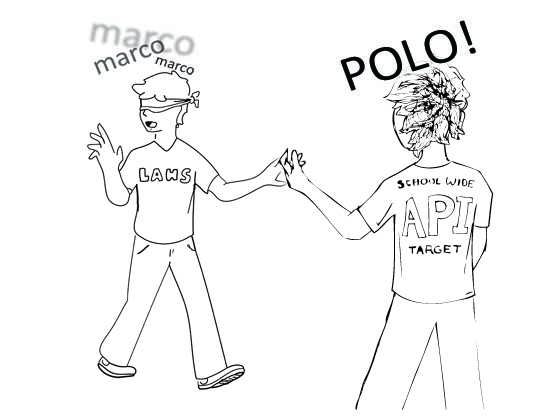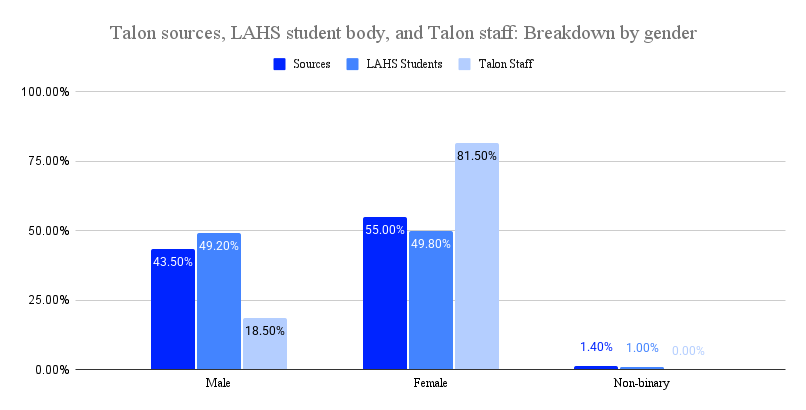Tutorials spent on STAR test prep may have finally paid off. Staff members find it difficult to pinpoint a defining reason for testing improvement, but the rising Academic Performance Index (API) score shows that the school is on the right track.
This year, the school raised its score to 853—a 28-point increase from last year. API scores are evaluated by colleges and are partially based on STAR test results. Though staff responses as to why the jump happened are varied, and factors may not have been entirely academic, there is no doubt that the school has made a collaborative effort to raise scores through test-taking practice and curriculum alignment. Nevertheless, in order to sustain these scores, the school must maintain its work ethic and continue to strive for improvement.
The faculty holds staff meetings every month and has intradepartmental meetings at least once every two weeks. Meetings are held to discuss curriculum and alignment along with other ways to improve the learning environment, and demonstrate staff enthusiasm in fostering student learning.
One result of such meetings is the rearrangement of class curriculum. In an effort to emphasize certain areas of learning that the STAR test covers, Algebra II teachers reorganized their curricula so that students would be better prepared for the test. The History Department had a two-day world history review session before the STAR test. In addition, certain science classes have accelerated the pace of covering curriculum in order to teach more topics.
Regardless of whether these implementations are reasons for improvement, the school shows dedication to its students by taking time to evaluate lessons and teaching styles.
It’s not just the staff that’s working to improve test scores. Students are becoming more motivated when it comes to testing as well. Though they’re not held individually accountable for STAR test results, students realize that API scores do in fact affect college admissions. Some who may not be college-bound, one teacher cited, still realize their scores affect their peers.
Faculty infer what may have caused the API increase, but no particular reason has been credited. Without further study, the school’s yearly API is not guaranteed to remain at its high score. Staff members must continue to collaborate, and students must follow through with diligence.
The school should be proud of its improvements this year, and should continue to re-evaluate curriculum and strive for gains. But students and staff must not forget that higher standardized test grades can only be maintained by continued motivation and reflective work ethic.








